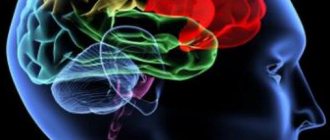Definition of the concept
Since the phenomenon of personality is a subject of study not only in psychology, but also in other humanities, the term does not have an unambiguous definition. For a better understanding of what a person is, three main definitions will be given below.
Personality is a set of individual qualities of a person (thinking, will, and so on) that determine his behavior in society, speak about his values, life experience, and aspirations.
In other words, the psychological difference between one individual and another characterizes his personality.
A person can be defined as a subject of society with a set of roles (social and personal), certain habits and experiences.
This term also refers to a person who is completely responsible for all aspects of his life.
The essence of the concept of personality
William James is considered to be the founder of personality psychology. He owns the philosophical theory of pragmatism, from which many modern trends in psychology emerged.
James is the first transpersonal psychologist. According to his theory, personality is the interaction of instincts and habits with the volitional qualities of a person.
However, the term “personality” itself belongs to N. M. Karamzin. In his understanding, a person is the master of fate, life, a spiritually rich and original person, responsible for his actions. Based on this, it can be argued that a person is not born, but becomes.
- Personality is a product of the social in man. At birth, a person has only a biological element, but immediately his formation as a person begins, that is, he assimilates social experience.
- However, there are many approaches to the interpretation of the personality phenomenon. You can read more about this in the article “Theories of Personality: Domestic and Foreign.”
- In psychology, it is customary to distinguish between the internal and external world of the individual. You can read about the first element in the article “What is the inner world of a person.” The external world refers to the relationship of the individual with society, the social environment, education and formation as a subject of society.
In order to become an individual, you need to make a lot of effort:
- master speech;
- with its help - motor, intellectual and sociocultural skills.
The formation of a person as an individual is the result of his socialization. The more information, value orientations, and traditions a person perceives and assimilates, the more developed a person he will become.
The concept of personality is closely related to the concept of the individual and individuality:
- An individual is a person as a representative of his species.
- Individuality is a set of unique distinctive features of a person.
But what’s interesting: a person can be an individual, but at the same time not be a person. Every person is unique, but not everyone becomes a person.
Thus, if we talk about a person as an individual, we mean a social element in our nature. While when discussing a person as an individual, the biological element plays a large role.
The process of personality formation is a holistic and interconnected process of formation of the needs, interests, worldview, beliefs and ideals of a particular person.
Personality structure
To better understand the term, it is worth considering its structure.
The structure of personality can be understood as the interaction of its component parts (character, aspirations, will, abilities, emotions). These parts (components) characterize a person; they can be called her traits. To structure these personality-defining traits, the following levels are distinguished:
- lower,
- second,
- third,
- higher.
The lowest level is the mental characteristics of a person determined by gender, age, and innate qualities.
The second level involves individual characteristics depending on innate qualities and their development (memory, thinking, abilities, perception of the surrounding world).
The third level is formed throughout life and is associated with socialization. It defines individual experience (knowledge acquired throughout life, habits, skills).
The highest level reflects the worldview, inclinations, beliefs, character traits, the so-called personality orientation. The highest level is most dependent on the social environment in which the formation of personality occurs. Education has a strong influence on the formation of this level. This structure gives a generalized idea of personality. Each person is multifaceted and the differences between people at each level of the structure discussed above are determined by individual experience, beliefs, character, and knowledge. This versatility and individuality often becomes the reason why it is difficult to understand an opponent and avoid conflict situations.
To better understand others and yourself, you need to have an idea of personality characteristics, be aware and observant.
What is personality?
Personality is a set of individual social and psychological properties of character and behavior. There are certain properties, structure and types of personality. They differ because each classification method is based on the research and points of view of different scientists in the field of psychology and sociology. They are united only by certain properties that help to “draw” a social and psychological portrait of an individual.
- Character. An important component that demonstrates the attitude towards the world, others, life, determines behavior and shapes views.
- Temperament. In accordance with this characteristic, there is a division into personality types: melancholic, choleric, phlegmatic, sanguine. Each of them has their own reactions to life circumstances and their perception.
- Motivation . A person may have several motives that determine his actions and come from his needs. They are the driving force; the stronger the motivation, the more purposeful the person.
- Capabilities. There are strong-willed, mental, physical, spiritual, etc. They are the basis for achievements and achieving goals. But a person does not always manage them skillfully.
- Emotionality . Shows how a person expresses his attitude to a situation, people, events.
- Directionality . The ability to define values and goals and move towards their achievement. It is a collection of things, tangible and intangible, that are truly dear to a person.
- Worldview . Outlook on life, vision of the world, attitude towards them. It can be realistic, mystical, feminine, masculine, positive, negative.
- Experience . Knowledge and skills acquired throughout life that have shaped their worldview and habits.
- Body drawing . External expression of personality characteristics: gait, facial expressions, gestures, stooping or an attempt to keep your back straight, etc.
Take a personality type test
Social structure of personality.
Sociology defines the structure of personality as a set of objective and subjective properties that form its detail, depending on society.
There are 2 approaches, each of which has its own important components:
- Activity, culture, memory . Activity involves conscious actions in relation to an object or subject. Culture concerns the social norms that weigh on an individual's actions. Memory is a storehouse of knowledge formed into experience.
- Value orientations, social roles, culture . This trio reflects character traits acquired through interaction with subjects of society, instilled by parents, inherited, formed by life experience.
Main characteristics
In psychology, personality characteristics are understood as those mental phenomena through which an individual manifests himself in communication with others and in everyday activities. The following main personality characteristics are distinguished:
- capabilities,
- will,
- temperament,
- character,
- emotions,
- motivation.
Capabilities
When it comes to a person’s successes and achievements (for example, studying at school), abilities are considered to be the criterion for assessing this success.
Abilities can be called properties of the soul, uniting all mental processes and states of a person. They also mean the totality of all the skills of an individual, thanks to which he successfully performs certain actions. Simply put, ability is both the ability to do something well, for example, to draw, and to experience strong feelings, for example, love or compassion.
Abilities are divided into:
- complex and simple
- practical and theoretical,
- educational and creative,
- general and special,
- communicative and subject-active.
Complex and simple abilities
The simplest include innate abilities based on the activity of the senses and elementary motor activity. For example, the ability to distinguish colors, sounds, walk, sit, and so on.
Complex abilities are understood as skills related to human culture (painting pictures, the ability to solve difficult problems in physics, etc.). These are not innate abilities; they are socially conditioned.
Psychological structure
Psychologists do not consider the structure of personality in isolation from the fundamental knowledge of science.
Mental properties
Psychology of human personality
Mental properties are the basis of personality structure in psychology. This includes such personality components as:
- Directionality. This is what a person strives for and what goals he has. This includes his needs, motives and interests.
- Temperament is a biologically determined feature of the functioning of the nervous system. It affects the dynamics of mental processes. At the moment, scientists distinguish the following criteria by which it is possible to systematize types of temperament: sensitivity (sensitivity), reactivity (the degree of emotional reaction to certain stimuli), resistance - the ability to withstand unfavorable conditions, plasticity/rigidity - a person’s ability/inability to adapt to changes in the environment world, extroversion, introversion and excitability.
- Character. Denotes the ways of human behavior and his attitude to the world around him. This includes individual characteristics such as responsibility, envy, frugality, kindness and others.
- Capabilities. This is a characteristic that affects how good prospects a person has in mastering some type of activity or how much time he will spend on it. A talented person grasps it on the fly, but a worker without abilities in this area is able to achieve only average results with a lot of effort. In any case, abilities are the main condition for building a career in any organization or when creating your own.
Important! Each of these characteristics, with the exception of temperament, can change throughout life. Even the lack of abilities that are partly innate can be compensated for by other personality traits. Thus, a person who has reached a certain level of competence learns much faster than a complete beginner. That is, as a skill develops, abilities also improve. In addition, it is possible to use skills from related areas.
Mental processes
The process is what happens. Accordingly, mental processes are everything that happens in the human psyche. The identification of individual ones is quite arbitrary; there is a close relationship between them. For example, memory is closely related to thinking, which, in turn, helps to remember information. It is impossible to think without the ability to remember.
Personality is a product of society
The group of mental processes includes:
- Feeling. The ability to reflect individual elements of the surrounding world: color, sound tone, volume, etc.
- Perception. The ability to select individual sensations and create a holistic image based on them. This also includes self-awareness as a person’s ability to perceive himself in the context of social norms, values and correlate his beliefs with those of others. He may feel personal freedom or dependence, self-confidence or fearfulness, and so on.
- Attention. Direction of perception towards a specific object.
- Thinking. A process that helps to compose a holistic logical model from several axiomatic components. This mental process is very important in teaching and designing scientific research methods. As a result of thinking, a theory is formed, which can be expressed in the form of a diagram: what prerequisite led to what mental construct. Thinking is the main tool of understanding - comprehending the structure of connections of a cognizable object. The main operations of this process are abstraction and concretization. The first is a derivation from the particular of the general, and the second is the opposite. Any typology in textbooks on philosophy and psychology is compiled on the basis of thinking.
- Imagination is a person’s ability to construct images, ideas and objects that were not previously familiar to him. How many cool ideas were invented thanks to this mental process! Imagination is the basis of a person’s ability to dream, for example, to imagine himself as having a higher status in society, a true professional in his field, and to build a plan to achieve this goal.
- Mental states. This group was formed by emotions, feelings, affects and stress.
- Speech. A form of communication between people using words, sentences and other linguistic structures.
Important! A characteristic feature of any mental processes is a continuous, fast-flowing nature, closely related to ongoing events.
Psychic formations
A brief definition of mental formations says that these are specific characteristics of a person, consisting of social experience and influencing the characteristics of his behavior and ways of interpreting the surrounding reality. For example, school social studies lessons are aimed at developing in a child the correct values, beliefs, and knowledge of legal norms. If you follow them, behavior patterns will be formed that will help him become a full-fledged member of society. They are mental formations.
To become an individual, you need to find your uniqueness
Practical and theoretical abilities
Practical abilities are understood as the ability of an individual to pose and solve problems that require action in certain situations.
Theoretical abilities determine abstract and logical thinking, the ability to solve theoretical problems.
Academic and creative abilities
Learning abilities mean how well a person learns new things, acquires knowledge, and acquires skills.
Creative abilities determine an individual’s ability to generate new ideas and produce spiritual and material values.
General and special abilities
General abilities are understood as those abilities that every person has (general mental, motor). But they are developed differently for everyone. And success in certain areas depends on this.
Special abilities can be defined as specific abilities that not every individual has. As a rule, they require innate abilities. This could be musical, acting or literary abilities.
Will
Will is what allows an individual to control his actions and psyche. This is conscious control over one’s behavior, a conscious influence on the surrounding reality.
The following factors can be called signs of will:
- making informed decisions,
- achieving your goals, overcoming difficulties on the way to them,
- self-restraint, when in order to achieve a goal an individual deprives himself of something that may seem attractive to him,
- a clear action plan,
- lack of emotional satisfaction from solving the task,
- moral satisfaction associated with achieving and overcoming oneself.
Will is a person’s main assistant in achieving his goals, the quality that helps him develop and grow as a person. It is the will that helps a person overcome life’s difficulties, even when it seems that the goal is unattainable.
What do we have to do
It is necessary to understand that in psychology there are still blind spots in the study of man. Scientists today argue about whether everyone should be considered a person or whether there are exceptions.
Some experts argue that certain individuals cannot be considered individuals because they do not develop, but, on the contrary, degrade.
Some people believe that every person is an individual. Scientists agree on one thing - infants are not individuals, since they cannot express thoughts and do not have tastes, interests, norms, or values. How do you understand that you are a full-fledged person? First, it is necessary to identify the characteristics characteristic of an individual:
- desire to gain new knowledge and experience;
- understanding the body and trust in it;
- understanding of proportion in everything;
- independence from other people's opinions.
Temperament
Temperament is those properties of the psyche that are responsible for its processes and human states.
The following main types of temperament, defined by Hippocrates, are distinguished:
- melancholic,
- choleric,
- phlegmatic,
- sanguine.
A melancholic person is characterized by a tense inner life. People with this temperament are usually gloomy, vulnerable, and have a high level of anxiety. They are restrained in communication, get tired quickly, and give in to difficulties.
Cholerics are quick-tempered, impulsive people, persistent. They have difficulty restraining their emotions, but quickly calm down if they get their way. Such people are true to their interests and aspirations.
Phlegmatic people are efficient and patient, they know how to control themselves perfectly. These are cold-blooded people who are difficult to disturb, but if this happens, it is difficult for them to calm down. Those with a phlegmatic temperament have difficulty adapting to new things and do not easily get rid of old habits.
Sanguine people are cheerful, optimistic, sociable people who love to joke. They are open to new things and easily adapt to changes, they are disciplined in their work and are able to keep their emotions in check.
This is a general and incomplete classification that gives general ideas about temperament.
You need to understand that a person can combine traits of different temperaments and that these types are not often found in their pure form.
Character
In psychology, character is understood as the way a person interacts with other people and the world. It is formed depending on the social conditions in which the individual is located and raised.
Character is manifested in the reaction to the actions of other people, in the manners of the person himself. Many character traits can be grouped into three groups:
- strong-willed,
- business,
- communicative,
- motivational,
- instrumental.
As it is not difficult to guess, strong-willed character traits determine a person’s will and its accompanying qualities (perseverance, determination, compliance).
Business traits are how an individual behaves during work (conscientiousness, laziness, responsibility, tendency to procrastinate).
Communication traits determine how contactable and sociable a person is, how he communicates with others (openness, kindness, politeness, rudeness, isolation).
Motivational traits mean those qualities that encourage action, directing it. Instrumental traits give a certain style to human behavior.
Emotions
Emotions in psychology are defined as individual experiences that arise when vital needs are satisfied (dissatisfied). They may be pleasant or not.
A person is capable of experiencing a variety of emotions, but the main ones include the following:
- the simplest emotions
- mood,
- affects,
- feelings.
The simplest emotions, their manifestation, are associated with the satisfaction of physiological needs.
Mood is a set of emotions that can describe the state of an individual at a certain moment.
Affects can be called strong short-term emotions that have...
By feelings, psychologists understand an individual’s experiences caused by a certain object.
Emotionally, people are very different from each other. These differences consist of different intensity and direction, and the duration of the experience of emotions.
Emotions influence decision-making and specific actions. This is why it is important to control your feelings.
Become a complete person
To be dependent, or better to say, to need protection, is the nature of a woman. For her harmonious development and pacification, she needs a protector. All life. In childhood, the girl is protected by her father. He gives her support and support, helps her to reveal herself in relationships with the opposite sex, protects her from attacks, and protects her purity and morality. The father hands the girl into the hands of a man, her husband, and then she is under the protection of her husband. In old age or in the event of the death of her husband, she is taken under the protection of her son or her husband’s family, his relatives.
This is how it was done in Vedic times. And this is justified.
Women's nature is similar to the nature of water. Water is peaceful when it is in a vessel, it simply takes its form. In nature, in the wild, water can turn into an uncontrollable element that destroys everything around. Or, having spilled over the plain, dry out in the sun.
Under protection, in the family, the female psyche calms down, curling up in a loving vessel.
When a woman does not receive the protection of her father (and this is a common situation in our society), she either loses herself and begins to develop according to the male type, i.e. makes a career, protects herself, earns money, provides herself with an apartment, a car, etc.
Or he is looking for a chosen one, whom he clings to with a death grip, wanting to receive from him everything that was not received in childhood.
We will talk about this case.
Addiction turns into a pathology when we make a loved one the center of our lives. He becomes so important to us that any fluctuation in his mood begins to be perceived as the end of the world.
Now imagine the state of another person - even if he loves you, sooner or later he will get tired of your iron grip, and he will want to free himself from the collar and leash that a dependent woman will want to put on him.
What are the signs of a dependent woman?
A dependent woman connects all her plans and hopes, all her expectations with the object of her dependence. This means that she will wait for happiness from another, and not having waited, demand it explicitly or through various manipulations.
A dependent woman watches and controls every step of her beloved. She calls him at work and looks at his phone. She is always there, filling the entire space of another person.
Being dependent and suffering from this, she herself strives to subjugate her loved one in order to gain at least some kind of stability.
A dependent woman is afraid of betrayal. She has already had a betrayal in her life - her father did not give her protection, did not fulfill his duty towards her, and this trauma and insecurity is transferred to her beloved man, he becomes too important in her eyes, and even at the thought of a possible betrayal of the last stronghold in her life, the woman breaks out in a cold sweat.
A dependent woman strives to be good in the eyes of her beloved, adapts to him and pleases him, often forgetting about herself and her needs. And then he expects the same from another person.
A dependent woman is afraid of scandals, showdowns and conflicts. Very often she accumulates negative emotions, gets offended and remains silent, expecting that her partner himself will understand the reason for her anxiety and begin to show increased attention.
A dependent woman is terrified of separation, divorce, pain.
She already knows what it is from her childhood impressions, now at all costs she strives to avoid repeating the fate of her mother, not noticing that she is stepping on the same rake, making the same mistakes, behaving the same way as her mother, and watching with growing horror how the partner moves away.
A dependent woman cannot be sincere; she is afraid that her lover will be disappointed in her. To be sincere, you need to be able to show others not only your strengths, but also your shortcomings, admit your mistakes, talk about your feelings and needs.
Opening up to others is scary, and you need to have personal strength to do this, to show not only the light, but also the dark sides of yourself.
A dependent woman has low self-esteem. She does not know how to value herself, to see her beauty, she considers herself second-rate, so the fear that her partner will see this, that he will prefer another woman to her, always lives next to her.
A dependent woman is constantly in tension. When her Beloved is not around, she waits for the moment when he will be nearby. When he is nearby, she begins to suffer from thoughts - “What if he leaves?”, “What if he dies?”, “What if he realizes that I’m not the one?”
A dependent woman leaves herself no chance to develop relationships or maintain love in the family. Because love is incompatible with a cage. Because a man is not a dog who can be put on a chain. Because Love needs Freedom. Only two free people can create a Space of Love!
What to do if you discover signs of dependence on another person?
- Increase your self-esteem. If a woman feels insecure, she will look for someone she can cling to. By increasing her value in her own eyes, changing her attitude towards herself and other people, she will gradually feel support under her feet. And then her love will not look like a vine entwined around her lover’s neck. Then her love will give wings to both her and her chosen one.
- Live through unlived emotions, complete unfinished situations from the past. We are filled with great love inside, we hide within ourselves enormous talents and great potential. All this can be buried under the shadow of unlived situations from the past, which remain in the form of grievances and claims against parents, in the form of pain towards the one who betrayed you, in the form of annoyance from previous failures and mistakes. All these situations require opening and liberation, because they carry enormous power that we have locked up and which destroys us from the inside.
- Communicate with harmonious people. During communication, we exchange not only conscious, but also subconscious information. And this means, the better the people with whom you communicate, the more of what you would like to have in your character, the more you will benefit from communicating with them, because their positive qualities will elevate you and inspire you to change. And vice versa, communicating with people who are looking for ears for complaints and regrets, criticism and dissatisfaction will lower you to their level, only taking away your strength. We need to be very careful in choosing the people with whom to communicate, because this will all affect our life and destiny.
- Seek knowledge about life, true knowledge. Now is a wonderful time when we have access to intimate knowledge about life, about the world, about the nature of men and women, about the laws of happiness. It is impossible to become happy without knowing these laws, it is impossible to establish harmony in the family without understanding and feeling the difference between male and female natures, it is impossible to achieve harmony if you do not know what it is and where the path to it lies.
- Lean on God. There is only one stable support that will never waver, never betray, and will never get away from us. This is God. And it is very important to improve your relationship with him, to understand him and his world, and above all, to understand yourself, because each of us is a part of him, which contains everything that is the whole. God is our father, and it is impossible to find Love without reconnecting with him, because only he gives us Love, and it opens in our hearts only when we find the path to God.
I'm not talking about religions now. Different paths lead to God - prayer, meditation, serving people, a kind smile every morning, giving birth and raising children, and loving nature and caring for it.
Everything we do with love connects us with God and gives us the strength to live on!
God never gives up on his children, and this is the only person who will wait for us forever in his abode, sending us love, helping us again and again to find the narrow path that leads to his heart!
Osho has a good parable on the topic of addiction:
Philosophical problem
One day it happened that Molla Nasreddin was walking alone along the road. It was a deserted road, the sun had already set and darkness was approaching. Suddenly he felt fear, as a group of people was moving towards him, and he thought: “These are apparently bandits, robbers, and there is no one here, only me.” With these thoughts, he quickly jumped over the wall that was nearby and found that he was in a cemetery. There was a freshly dug grave there, so he climbed into it, somehow calmed down, closed his eyes and waited for people to pass by so he could calmly go home.
But those people also saw that someone was there. Molla jumped suddenly, they saw a flashing shadow and were also afraid. What's the matter? Is someone hiding there or doing something bad? And they all jumped over the wall.
Now the mullah was sure that he had made the right conclusion: they were dangerous people. “Now nothing can be done, I must pretend to be dead.” And he pretended. He stopped breathing, because you cannot rob or kill a dead person.
But people saw that the man jumped, so they became even more alarmed. What is he doing? And so they crowded around the grave, looked into it and asked:
- What's happened? What are you doing? Why are you here?
Molla opened his eyes, looked at them and was convinced that there was no danger. He laughed and said:
- So, there is a problem, a very philosophical problem. You ask me why I am here, and I would like to ask why you are here. I'm here because of you, and you're here because of me!
This parable is about a vicious circle: You enter into it when you start thinking about the impression you make on others. Some are so worried about it that they cannot live at all. Everyone is interested in what others think of them, and this is true of everyone. They worry about you, and you worry about them. You are afraid of others, others are afraid of you, and life becomes a mess. Drop this nonsense, drop this vicious circle. Stop thinking about others and what they think about you.
This "o" is very dangerous. Because of him, no one is calm, no one is at home.
Your life is enough, focus on your own life, don't be confused by others. If you can live without this care, your life will blossom and then others will be able to share its fragrance with you.
Tatiana Plotnikova
Source: https://vk.com/wall-125375313_814











